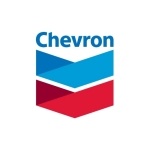SAN RAMON, Calif.–(BUSINESS WIRE)–Chevron Corporation (NYSE: CVX) announced today that its 50 percent owned affiliate Tengizchevroil LLP (TCO) has safely commenced operations at its Wellhead Pressure Management Project (WPMP) at the Tengiz oil field in Kazakhstan.
TCO achieved this milestone by converting its first metering station at Tengiz to low pressure and activating the associated Pressure Boost Facility (PBF). This marks important progress for TCO’s overall expansion project at Tengiz.
The WPMP is designed to maintain the existing processing plants’ full capacity (approx. 28 million tonnes per annum), by lowering the flowing pressure at the wellheads and then boosting the pressure to the existing plants.
“This is a significant step towards completion of the Future Growth Project (FGP). It is also important progress for the modernization of the existing base business at Tengiz and demonstrates TCO’s commitment to safely and reliably manage operations, while maximizing the ultimate recovery of resources critical to global energy security,” said Clay Neff, President of Chevron International Exploration and Production.
The start-up of additional PBF compressors and the conversion of the remaining metering stations in the oil gathering system at Tengiz, from high pressure to low pressure, is scheduled for completion through the remainder of the year.
The final phase of TCO’s expansion project, FGP, is on track to conclude in the first half of 2025. This will enable TCO to expand Tengiz crude oil production by an incremental 12 million tons per annum (260,000 barrels a day).
“This accomplishment highlights the vital role of partnership. Together with the Republic of Kazakhstan and our other partners, we have safely started operations at the WPMP, which is a positive development as we continue our focus on the FGP-WPMP expansion project,” said Derek Magness, Managing Director of Chevron’s Eurasia Business Unit.
About Chevron
Chevron is one of the world’s leading integrated energy companies. We believe affordable, reliable, and ever-cleaner energy is essential to enabling human progress. Chevron produces crude oil and natural gas; manufactures transportation fuels, lubricants, petrochemicals, and additives; and develops technologies that enhance our business and the industry. We aim to grow our oil and gas business, lower the carbon intensity of our operations, and grow lower carbon businesses in renewable fuels, carbon capture and offsets, hydrogen and other emerging technologies. More information about Chevron is available at www.chevron.com.
CAUTIONARY STATEMENTS RELEVANT TO FORWARD-LOOKING INFORMATION FOR THE PURPOSE OF “SAFE HARBOR” PROVISIONS OF THE PRIVATE SECURITIES LITIGATION REFORM ACT OF 1995
This news release contains forward-looking statements relating to Chevron’s operations and lower carbon strategy that are based on management’s current expectations, estimates, and projections about the petroleum, chemicals and other energy-related industries. Words or phrases such as “anticipates,” “expects,” “intends,” “plans,” “targets,” “advances,” “commits,” “drives,” “aims,” “forecasts,” “projects,” “believes,” “approaches,” “seeks,” “schedules,” “estimates,” “positions,” “pursues,” “progress,” “may,” “can,” “could,” “should,” “will,” “budgets,” “outlook,” “trends,” “guidance,” “focus,” “on track,” “goals,” “objectives,” “strategies,” “opportunities,” “poised,” “potential,” “ambitions,” “aspires” and similar expressions, and variations or negatives of these words, are intended to identify such forward-looking statements, but not all forward-looking statements include such words. These statements are not guarantees of future performance and are subject to numerous risks, uncertainties and other factors, many of which are beyond the company’s control and are difficult to predict. Therefore, actual outcomes and results may differ materially from what is expressed or forecasted in such forward-looking statements. The reader should not place undue reliance on these forward-looking statements, which speak only as of the date of this news release. Unless legally required, Chevron undertakes no obligation to update publicly any forward-looking statements, whether as a result of new information, future events or otherwise.
Among the important factors that could cause actual results to differ materially from those in the forward-looking statements are: changing crude oil and natural gas prices and demand for the company’s products, and production curtailments due to market conditions; crude oil production quotas or other actions that might be imposed by the Organization of Petroleum Exporting Countries and other producing countries; technological advancements; changes to government policies in the countries in which the company operates; public health crises, such as pandemics and epidemics, and any related government policies and actions; disruptions in the company’s global supply chain, including supply chain constraints and escalation of the cost of goods and services; changing economic, regulatory and political environments in the various countries in which the company operates; general domestic and international economic, market and political conditions, including the military conflict between Russia and Ukraine, the conflict in Israel and the global response to these hostilities; changing refining, marketing and chemicals margins; actions of competitors or regulators; timing of exploration expenses; timing of crude oil liftings; the competitiveness of alternate-energy sources or product substitutes; development of large carbon capture and offset markets; the results of operations and financial condition of the company’s suppliers, vendors, partners and equity affiliates; the inability or failure of the company’s joint-venture partners to fund their share of operations and development activities; the potential failure to achieve expected net production from existing and future crude oil and natural gas development projects; potential delays in the development, construction or start-up of planned projects; the potential disruption or interruption of the company’s operations due to war, accidents, political events, civil unrest, severe weather, cyber threats, terrorist acts, or other natural or human causes beyond the company’s control; the potential liability for remedial actions or assessments under existing or future environmental regulations and litigation; significant operational, investment or product changes undertaken or required by existing or future environmental statutes and regulations, including international agreements and national or regional legislation and regulatory measures related to greenhouse gas emissions and climate change; the potential liability resulting from pending or future litigation; the ability to successfully integrate the operations of the company and PDC Energy, Inc. and achieve the anticipated benefits from the transaction, including the expected incremental annual free cash flow; the risk that Hess Corporation (Hess) stockholders do not approve the potential transaction, and the risk that regulatory approvals are not obtained or are obtained subject to conditions that are not anticipated by the company and Hess; potential delays in consummating the Hess transaction, including as a result of regulatory proceedings or the ongoing arbitration proceedings regarding preemptive rights in the Stabroek Block joint operating agreement; risks that such ongoing arbitration is not satisfactorily resolved and the potential transaction fails to be consummated; uncertainties as to whether the potential transaction, if consummated, will achieve its anticipated economic benefits, including as a result of regulatory proceedings and risks associated with third party contracts containing material consent, anti-assignment, transfer or other provisions that may be related to the potential transaction that are not waived or otherwise satisfactorily resolved; the company’s ability to integrate Hess’ operations in a successful manner and in the expected time period; the possibility that any of the anticipated benefits and projected synergies of the potential transaction will not be realized or will not be realized within the expected time period; the company’s future acquisitions or dispositions of assets or shares or the delay or failure of such transactions to close based on required closing conditions; the potential for gains and losses from asset dispositions or impairments; government mandated sales, divestitures, recapitalizations, taxes and tax audits, tariffs, sanctions, changes in fiscal terms or restrictions on scope of company operations; foreign currency movements compared with the U.S. dollar; higher inflation and related impacts; material reductions in corporate liquidity and access to debt markets; changes to the company’s capital allocation strategies; the effects of changed accounting rules under generally accepted accounting principles promulgated by rule-setting bodies; the company’s ability to identify and mitigate the risks and hazards inherent in operating in the global energy industry; and the factors set forth under the heading “Risk Factors” on pages 20 through 26 of the company’s 2023 Annual Report on Form 10-K and in subsequent filings with the U.S. Securities and Exchange Commission. Other unpredictable or unknown factors not discussed in this news release could also have material adverse effects on forward-looking statements.
Contacts
Chevron
Sally Jones
[email protected]
+44 5601091435
Ainur Sagi
[email protected]
+77029992084




